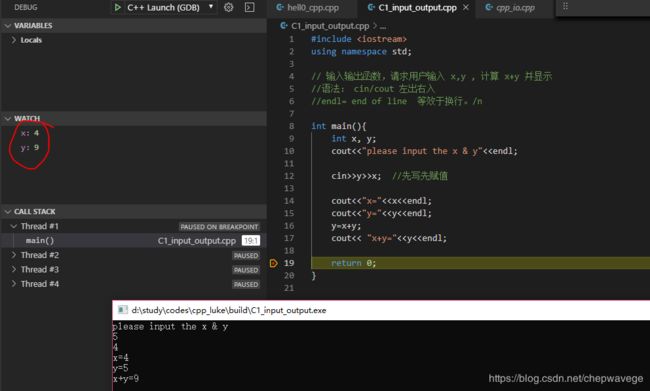- 深入探究 Java 异常处理
潜意识Java
Java知识javapython开发语言
目录一、异常是什么,为啥要处理它二、Java异常体系概述三、Java异常处理方式1.try-catch-finally块2.throws关键字3.throw关键字四、自定义异常五、异常处理的最佳实践六、总结在Java编程的旅程中,异常处理就像是一位默默守护的卫士,时刻保障着程序的稳健运行。当程序运行过程中出现错误或异常情况时,合理的异常处理机制能够避免程序崩溃,让程序以一种可控的方式继续执行或优雅
- azkaban的概况
北京小峻
大数据azkabanmysql数据库
Azkaban的性质azkaban是一个任务调度,管理系统,可以帮用户管理,调度各种运算任务的一个web服务器可以调度任何任务,只要你的任务能用脚本启动azkaban的类似的产品还有很多,例如hadoop生态中原生的:oozie,areflow局限性目前azkaban只支持mysql作为元数据管理系统,必须安装mysql服务器角色executorserver有好几个是真正执行的程序,调度用户的任务
- lxml.etree模式使用(一)
卫生纸不够用
python爬虫python前端javascript
fromlxmlimportetreefromcopyimportdeepcopydefprettyprint(element,**kwargs):print("/")xml=etree.tostring(element,pretty_print=True,**kwargs)print(xml.decode(),end='')#1.创建元素root=etree.Element("root")#2.
- Maxwell软件使用问题——旧版本打开新版本(The partner project name of the link cannot be empty)
加点油。。。。
Maxwell建模maxwell电机建模仿真ansys
问题:使用AnsysElectronics2019R1打开2022R1运行maxwell模型是出现了下面问题解决方法:参考链接:(https://bbs.simol.cn/thread-200781-1-1.html)将setup中Advanced的对勾去掉。
- 商品详情页面html,div+css+JQuery仿京东商品详情界面
L相好
商品详情页面html
【实例简介】div+css+JQuery仿京东商品详情界面【实例截图】【核心代码】京东商品详情界面├──__MACOSX│└──浜笢鍟嗗搧璇︽儏鐣岄潰│├──css│├──images││├──images││└──products│└──js└──浜笢鍟嗗搧璇︽儏鐣岄潰├──css│├──common_07.css│├──product.css│├──product_left.css│├──
- python etree模块所有函数详解_09.XML处理之etree模块
weixin_39878401
pythonetree模块所有函数详解
本主题主要说明python的xml处理标准模块xml.etree的使用。xml.etree模块包含4个子模块,其中cElementTree是ElementTree的别名,已经不推荐使用。本主题主要包含内容:1.ElementInclude模块使用2.ElementPath模块使用3.ElementTree模块使用一、etree模块帮助importxml.etreehelp(xml.etree)He
- 自动化办公python脚本_Python自动化办公
weixin_39834281
自动化办公python脚本
在公司购买的OA系统上,很多功能都是软件商开发好的,如果有什么自定义的需求,也很难实现。现实情况下需要将一个工单的各类信息汇总整理为一份Excel,看似简单的需求,却需要在OA系统上反复点击多次,人工汇总。本章我们看看如何使用Python爬虫帮同事解决这个问题的。点击工单号之后才可以看到更多信息一、技术路线requests_html二、环境准备fromrequests_htmlimportHTML
- iOS 网络请求: Alamofire 结合 ObjectMapper 实现自动解析
胖虎1
开发经验分享iosAlamofireObjectMapper网络请求自动解析数据自动解析模型
引言在iOS开发中,网络请求是常见且致其重要的功能之一。从获取资料到上传数据,出色的网络请求框架能夠大大提升开发效率。Alamofire是一个极具人气的Swift网络请求框架,提供了便据的API以完成网络请求和响应处理。它支持多种请求类型,如GET和POST,并且给予您便据的带容处理过滤器和返回数据解析的功能。ObjectMapper是一个强大的Swift数据映射工具,使用其提供的Mappable
- Mybatis总结(一)(简单介绍)
weixin_34326429
java数据库
1.1MyBatis介绍MyBatis本是apache的一个开源项目iBatis,2010年这个项目由apachesoftwarefoundation迁移到了googlecode,并且改名为MyBatis,实质上Mybatis对ibatis进行一些改进。MyBatis是一个优秀的持久层框架,它对jdbc的操作数据库的过程进行封装,使开发者只需要关注SQL本身,而不需要花费精力去处理例如注册驱动、创
- android presentation
weixin_33725126
移动开发ui
对于双屏异显(lcd和hdmi的双屏异显),android框架已经支持,但是底层接口功能还是要自己去实现,且需要底层驱动支持。使用presentation去画第二个display就好了。1MediaRoutermediaRouter=(MediaRouter)context.getSystemService(Context.MEDIA_ROUTER_SERVICE);2MediaRouter.Ro
- 射频框架
YOYO--小天
计算机硬件
版权声明:本文为博主原创文章,遵循CC4.0BY-SA版权协议,转载请附上原文出处链接和本声明。本文链接:关于射频————————————————版权声明:本文为CSDN博主「gecko001」的原创文章,遵循CC4.0BY-SA版权协议,转载请附上原文出处链接及本声明。原文链接:https://blog.csdn.net/gecko001/article/details/86569912RF前端
- mybatis架构原理
章绍龙
java基础
1、mybatis配置SqlMapConfig.xml,此文件作为mybatis的全局配置文件,配置了mybatis的运行环境等信息。mapper.xml文件即sql映射文件,文件中配置了操作数据库的sql语句。此文件需要在SqlMapConfig.xml中加载。SqlMapConfig.xml是mybatis的核心文件。mybatis将dao层与sql语句分离开来,虽然写的时候分离开来了,但是执
- STM32 FreeROTS 任务创建和删除实验(静态方法)
雁过留声花欲落
STM32FreeRTOSstm32嵌入式硬件单片机
实验目标学会xTaskCreateStatic()和vTaskDelete()的使用:start_task:用来创建其他的三个任务。task1:实现LED1每500ms闪烁一次。task2:实现LED2每500ms闪烁一次。task3:判断按键KEY1是否按下,按下则删掉task1。看代码直接看代码修改,其余和动态创建和删除一样。STM32FreeRTOS任务创建和删除实验(动态方法)-CSDN博
- 东南大学研究生-数值分析上机题(2023)Python 6 常微分方程数值解法
天空的蓝耀
python
常微分方程初值问题数值解6.1题目编制RK4方法的通用程序;编制AB4方法的通用程序(由RK4提供初值);编制AB4-AM4预测校正方法通用程序(由RK4提供初值);编制带改进的AB4-AM4预测校正方法通用程序(由RK4提供初值);对于初值问题{y′=−x2y2,0≤x≤1.5,y(0)=3\begin{cases}y'=-x^{2}y^{2},&0\leqx\leq1.5,\\y(0)=3&\
- C++ Primer:3.2 标准库类型string
天空的蓝耀
c++开发语言
其他章节:C++Primer学习心得标准库类型string表示可变长的字符序列,使用string类型必须首先头文件,string定义在命名空间std中#includeusingstd::string定义和初始化string对象初始化类的对象是由类本身决定的,一个类可以定义很多种初始化对象的方式。strings1//默认初始化,s1是一个空串strings2(sl)//s2是s1的副本strings
- C++ Primer:3.3 标准库类型vector
天空的蓝耀
c++开发语言
其他章节:C++Primer学习心得vector类型表示对象的集合,所有对象的类型都相同。集合中的每个对象都有一个与之对应的索引,用于访问对象。vector容纳着其他对象,也被称作容器。使用vector必须包含适当的头文件。#includeusingstd::vectorvector是一个类模板,模板不是类或函数。编译器根据模板创建类或函数的过程成为实例化,当使用模板时,需要指出把类和函数实例化成
- 东南大学研究生-数值分析上机题(2023)Python 1 绪论
天空的蓝耀
python
舍入误差与有效数1.1题目设SN=∑j=2N1j2−1S_N=\sum\limits_{j=2}^{N}\displaystyle\frac{1}{j^2-1}SN=j=2∑Nj2−11其精确值为12(23−1N−1N+1)\displaystyle\frac{1}{2}\left(\frac{2}{3}-\frac{1}{N}-\frac{1}{N+1}\right)21(32−N1−N+11)
- 计算机网络03(传输层工作原理,TCP/UDP协议)
~须尽欢
计算机网络tcp/ipudp网络网络协议tcp
目录一:介绍传输层二:TCP协议1.TCP包头结构信息2.三次握手3.四次挥手4.流量控制5.差错控制三:UDP协议1、UDP介绍2、UDP常用领域四:TCP和UDP的对比1、应用方面及服务端口2、整体对比一:介绍传输层1.作用:传输层是整个网络体系结构中的关键层次之一,主要负责向两个主机中进程之间的通信提供服务。由于一个主机同时运行多个进程,因此运输层具有复用和分用功能。传输层在终端用户之间提供
- day 21
qq_50996930
Go语言基础go学习
进程、线程、协程的区别进程:操作系统分配资源的最小单位,其中可以包含一个或者多个线程,进程之间是独立的,可以通过进程间通信机制(管道,消息队列,共享内存,信号量,信号,socket套接字)通信,进程的切换涉及到许多资源耗费时间多。线程:轻量级的进程,一个进程之间可以有多个线程,系统调度的最小单位,多个线程之间共享一部分进程的资源,有线程独立的线程栈,程序计数器,寄存器等。可以通过共享内存通信,相对
- 动手写分布式缓存 11
qq_50996930
Go语言学习专栏分布式缓存
main函数实现定义一个map模拟数据库。varmysql=map[string]string{"Tom":"630","Jack":"589","Sam":"567",}为多个端口处创建rpc服务服务名就是ip+端口。将各个服务器的ip+端口加到每个服务器的哈希环里。为每个服务器创建缓存池组。缓存池组和rpc服务绑定。持续监听端口addrs:=[]string{"localhost:9999",
- Go的基础操作
qq_50996930
Go语言学习专栏golang后端
helloworld通过一段简单go代码打印helloworld。packagemainimport("fmt")funcmain(){fmt.Println("Hello,Golang!")}我们来逐行解析一下:packagemain:声明了当前这个go文件所在的包,Go用包来组织代码,一般一个文件夹是一个包,包内可以暴露类型供其他包使用。import(“fmt”):fmt就是go语言的一个标准
- day 21
qq_50996930
C++学习专栏c++stl
C++11新特性智能指针右值引用和move语句auto关键字(根据初始化的值自动推导类型)lambda表达式for的范围遍历类和结构体中初始化列表nullptr代替null统一的初始化方式…智能指针:智能指针利用RAII思想将指针进行封装,使其在构造时分配内存,析构时释放内存,将动态分配的内存交给类对象管理,防止堆内存泄漏。常见的三种智能指针分别是unique_ptr,shared_ptr,wea
- 【SpringBoot实现xss防御】
龙少9543
后端springbootxss后端
SpringBoot实现xss防御在SpringBoot中实现XSS防御,可以通过多种方式来确保输入的安全性和防止恶意脚本的注入。下面提供了一些具体的实现代码示例,包括输入清理、输出编码以及设置安全响应头。1.输入清理创建一个简单的工具类来进行HTML转义:importorg.jsoup.Jsoup;importorg.jsoup.nodes.Document.OutputSettings;imp
- 异常检测的评价指标:ROCAUC等【tips】
太简单了
tips计算机视觉深度学习pytorch
准确率Precision&召回率Recallfromsklearn.metricsimportprecision_recall_curveprecision,recall,thresholds=precision_recall_curve(gt_mask.flatten(),scores.flatten())混淆矩阵:实际预测正负正TP(真正类)FN(假负类)负FP(假正类)TN(真负类)prec
- Docker的原理:如何理解容器技术的力量 思维导图-java架构
用心去追梦
大数据javastorm
要理解Docker的原理以及容器技术的力量,可以通过一个思维导图来帮助整理和展示信息。以下是一个基于文本的思维导图结构,用于说明Docker和容器技术的关键概念,特别关注于Java架构师可能会感兴趣的部分:Docker与容器技术│├───基本概念│├───容器(Container)││└───是一个轻量级、可移植、自包含的软件包│├───镜像(Image)││└───包含应用程序及其所有依赖项的只
- Java 驱动大数据流处理:Storm 与 Flink 入门 (大数据)
用心去追梦
大数据javastorm
Java是一种广泛使用的编程语言,特别适用于企业级应用开发。随着数据量的不断增长,处理大数据流成为了现代软件开发中的一个重要领域。ApacheStorm和ApacheFlink是两个用于处理大规模数据流的开源框架,它们都支持用Java编写的应用程序。下面将简要介绍这两个框架,并提供一些入门指导。ApacheStormApacheStorm是一个免费、开源的分布式实时计算系统。Storm让用户能够轻
- 实现音乐播放器实现:前端HTML,CSS,JavaScript综合大项目(java实战)
用心去追梦
前端htmlcss
创建一个音乐播放器项目,使用HTML、CSS和JavaScript作为前端技术栈,并结合Java后端(如果需要),可以是一个很好的实战项目。这个项目不仅能够帮助你掌握前端开发技能,还能让你了解如何与后端交互来获取数据。下面是实现这样一个音乐播放器项目的步骤指南,包括了从规划到部署的各个方面。1.项目规划规划功能基本功能播放/暂停按钮。音量控制。进度条。歌曲列表显示。高级功能随机播放。列表循环。搜索
- hive电影数据分析系统 Springboot协同过滤-余弦函数推荐系统 爬虫2万+数据 大屏数据展示 + [手把手视频教程 和 开发文档]
QQ-1305637939
毕业设计大数据毕设计算机毕业设计hivespringboot爬虫
hive电影数据分析Springboot协同过滤-余弦函数推荐系统爬虫2万+数据大屏数据展示+[手把手视频教程和开发文档]【功能介绍】1.java爬取【豆瓣电影】网站中电影数据,保存为data.csv文件,数据量2万+2.data.csv上传到hadoop集群环境3.MR数据清洗data.csv4.Hive汇总处理,将Hive处理的结果数据保存到本地Mysql数据库中5.Springboot+Vu
- hadoop电影数据分析系统 Springboot协同过滤-余弦函数推荐系统 爬虫2万+数据 大屏数据展示 + [手把手视频教程 和 开发文档]
QQ-1305637939
计算机毕业设计毕业设计大数据毕设hadoopspringboot爬虫
全套视频教程全套开发文档hadoop电影数据分析系统Springboot协同过滤-余弦函数推荐系统爬虫2万+数据大屏数据展示【Hadoop项目】1.java爬取【豆瓣电影】网站中电影数据,保存为data.csv文件,数据量2万+2.data.csv上传到hadoop集群环境3.data.csv数据清洗4.MR数据汇总处理,将Reduce的结果数据保存到本地Mysql数据库中5.Springboot
- spark电影数据分析系统 Springboot协同过滤-余弦函数推荐系统 爬虫2万+数据 大屏数据展示 + [手把手视频教程 和 开发文档]
QQ-1305637939
毕业设计大数据毕设计算机毕业设计sparkspringboot爬虫大数据电影推荐电影分析
spark电影数据分析系统Springboot协同过滤-余弦函数推荐系统爬虫2万+数据大屏数据展示+[手把手视频教程和开发文档【功能介绍】1.java爬取【豆瓣电影】网站中电影数据,保存为data.csv文件,数据量2万+2.data.csv上传到hadoop集群环境3.MR数据清洗data.csv4.Spark汇总处理,将Spark处理的结果数据保存到本地Mysql数据库中5.Springboo
- C/C++Win32编程基础详解视频下载
择善Zach
编程C++Win32
课题视频:C/C++Win32编程基础详解
视频知识:win32窗口的创建
windows事件机制
主讲:择善Uncle老师
学习交流群:386620625
验证码:625
--
- Guava Cache使用笔记
bylijinnan
javaguavacache
1.Guava Cache的get/getIfPresent方法当参数为null时会抛空指针异常
我刚开始使用时还以为Guava Cache跟HashMap一样,get(null)返回null。
实际上Guava整体设计思想就是拒绝null的,很多地方都会执行com.google.common.base.Preconditions.checkNotNull的检查。
2.Guava
- 解决ora-01652无法通过128(在temp表空间中)
0624chenhong
oracle
解决ora-01652无法通过128(在temp表空间中)扩展temp段的过程
一个sql语句后,大约花了10分钟,好不容易有一个结果,但是报了一个ora-01652错误,查阅了oracle的错误代码说明:意思是指temp表空间无法自动扩展temp段。这种问题一般有两种原因:一是临时表空间空间太小,二是不能自动扩展。
分析过程:
既然是temp表空间有问题,那当
- Struct在jsp标签
不懂事的小屁孩
struct
非UI标签介绍:
控制类标签:
1:程序流程控制标签 if elseif else
<s:if test="isUsed">
<span class="label label-success">True</span>
</
- 按对象属性排序
换个号韩国红果果
JavaScript对象排序
利用JavaScript进行对象排序,根据用户的年龄排序展示
<script>
var bob={
name;bob,
age:30
}
var peter={
name;peter,
age:30
}
var amy={
name;amy,
age:24
}
var mike={
name;mike,
age:29
}
var john={
- 大数据分析让个性化的客户体验不再遥远
蓝儿唯美
数据分析
顾客通过多种渠道制造大量数据,企业则热衷于利用这些信息来实现更为个性化的体验。
分析公司Gartner表示,高级分析会成为客户服务的关键,但是大数据分析的采用目前仅局限于不到一成的企业。 挑战在于企业还在努力适应结构化数据,疲于根据自身的客户关系管理(CRM)系统部署有效的分析框架,以及集成不同的内外部信息源。
然而,面对顾客通过数字技术参与而产生的快速变化的信息,企业需要及时作出反应。要想实
- java笔记4
a-john
java
操作符
1,使用java操作符
操作符接受一个或多个参数,并生成一个新值。参数的形式与普通的方法调用不用,但是效果是相同的。加号和一元的正号(+)、减号和一元的负号(-)、乘号(*)、除号(/)以及赋值号(=)的用法与其他编程语言类似。
操作符作用于操作数,生成一个新值。另外,有些操作符可能会改变操作数自身的
- 从裸机编程到嵌入式Linux编程思想的转变------分而治之:驱动和应用程序
aijuans
嵌入式学习
笔者学习嵌入式Linux也有一段时间了,很奇怪的是很多书讲驱动编程方面的知识,也有很多书将ARM9方面的知识,但是从以前51形式的(对寄存器直接操作,初始化芯片的功能模块)编程方法,和思维模式,变换为基于Linux操作系统编程,讲这个思想转变的书几乎没有,让初学者走了很多弯路,撞了很多难墙。
笔者因此写上自己的学习心得,希望能给和我一样转变
- 在springmvc中解决FastJson循环引用的问题
asialee
循环引用fastjson
我们先来看一个例子:
package com.elong.bms;
import java.io.OutputStream;
import java.util.HashMap;
import java.util.Map;
import co
- ArrayAdapter和SimpleAdapter技术总结
百合不是茶
androidSimpleAdapterArrayAdapter高级组件基础
ArrayAdapter比较简单,但它只能用于显示文字。而SimpleAdapter则有很强的扩展性,可以自定义出各种效果
ArrayAdapter;的数据可以是数组或者是队列
// 获得下拉框对象
AutoCompleteTextView textview = (AutoCompleteTextView) this
- 九封信
bijian1013
人生励志
有时候,莫名的心情不好,不想和任何人说话,只想一个人静静的发呆。有时候,想一个人躲起来脆弱,不愿别人看到自己的伤口。有时候,走过熟悉的街角,看到熟悉的背影,突然想起一个人的脸。有时候,发现自己一夜之间就长大了。 2014,写给人
- Linux下安装MySQL Web 管理工具phpMyAdmin
sunjing
PHPInstallphpMyAdmin
PHP http://php.net/
phpMyAdmin http://www.phpmyadmin.net
Error compiling PHP on CentOS x64
一、安装Apache
请参阅http://billben.iteye.com/admin/blogs/1985244
二、安装依赖包
sudo yum install gd
- 分布式系统理论
bit1129
分布式
FLP
One famous theory in distributed computing, known as FLP after the authors Fischer, Lynch, and Patterson, proved that in a distributed system with asynchronous communication and process crashes,
- ssh2整合(spring+struts2+hibernate)-附源码
白糖_
eclipsespringHibernatemysql项目管理
最近抽空又整理了一套ssh2框架,主要使用的技术如下:
spring做容器,管理了三层(dao,service,actioin)的对象
struts2实现与页面交互(MVC),自己做了一个异常拦截器,能拦截Action层抛出的异常
hibernate与数据库交互
BoneCp数据库连接池,据说比其它数据库连接池快20倍,仅仅是据说
MySql数据库
项目用eclipse
- treetable bug记录
braveCS
table
// 插入子节点删除再插入时不能正常显示。修改:
//不知改后有没有错,先做个备忘
Tree.prototype.removeNode = function(node) {
// Recursively remove all descendants of +node+
this.unloadBranch(node);
// Remove
- 编程之美-电话号码对应英语单词
bylijinnan
java算法编程之美
import java.util.Arrays;
public class NumberToWord {
/**
* 编程之美 电话号码对应英语单词
* 题目:
* 手机上的拨号盘,每个数字都对应一些字母,比如2对应ABC,3对应DEF.........,8对应TUV,9对应WXYZ,
* 要求对一段数字,输出其代表的所有可能的字母组合
- jquery ajax读书笔记
chengxuyuancsdn
jQuery ajax
1、jsp页面
<%@ page language="java" import="java.util.*" pageEncoding="GBK"%>
<%
String path = request.getContextPath();
String basePath = request.getScheme()
- JWFD工作流拓扑结构解析伪码描述算法
comsci
数据结构算法工作活动J#
对工作流拓扑结构解析感兴趣的朋友可以下载附件,或者下载JWFD的全部代码进行分析
/* 流程图拓扑结构解析伪码描述算法
public java.util.ArrayList DFS(String graphid, String stepid, int j)
- oracle I/O 从属进程
daizj
oracle
I/O 从属进程
I/O从属进程用于为不支持异步I/O的系统或设备模拟异步I/O.例如,磁带设备(相当慢)就不支持异步I/O.通过使用I/O 从属进程,可以让磁带机模仿通常只为磁盘驱动器提供的功能。就好像支持真正的异步I/O 一样,写设备的进程(调用者)会收集大量数据,并交由写入器写出。数据成功地写出时,写入器(此时写入器是I/O 从属进程,而不是操作系统)会通知原来的调用者,调用者则会
- 高级排序:希尔排序
dieslrae
希尔排序
public void shellSort(int[] array){
int limit = 1;
int temp;
int index;
while(limit <= array.length/3){
limit = limit * 3 + 1;
- 初二下学期难记忆单词
dcj3sjt126com
englishword
kitchen 厨房
cupboard 厨柜
salt 盐
sugar 糖
oil 油
fork 叉;餐叉
spoon 匙;调羹
chopsticks 筷子
cabbage 卷心菜;洋白菜
soup 汤
Italian 意大利的
Indian 印度的
workplace 工作场所
even 甚至;更
Italy 意大利
laugh 笑
m
- Go语言使用MySQL数据库进行增删改查
dcj3sjt126com
mysql
目前Internet上流行的网站构架方式是LAMP,其中的M即MySQL, 作为数据库,MySQL以免费、开源、使用方便为优势成为了很多Web开发的后端数据库存储引擎。MySQL驱动Go中支持MySQL的驱动目前比较多,有如下几种,有些是支持database/sql标准,而有些是采用了自己的实现接口,常用的有如下几种:
http://code.google.c...o-mysql-dri
- git命令
shuizhaosi888
git
---------------设置全局用户名:
git config --global user.name "HanShuliang" //设置用户名
git config --global user.email "
[email protected]" //设置邮箱
---------------查看环境配置
git config --li
- qemu-kvm 网络 nat模式 (四)
haoningabc
kvmqemu
qemu-ifup-NAT
#!/bin/bash
BRIDGE=virbr0
NETWORK=192.168.122.0
GATEWAY=192.168.122.1
NETMASK=255.255.255.0
DHCPRANGE=192.168.122.2,192.168.122.254
TFTPROOT=
BOOTP=
function check_bridge()
- 不要让未来的你,讨厌现在的自己
jingjing0907
生活 奋斗 工作 梦想
故事one
23岁,他大学毕业,放弃了父母安排的稳定工作,独闯京城,在家小公司混个小职位,工作还算顺手,月薪三千,混了混,混走了一年的光阴。 24岁,有了女朋友,从二环12人的集体宿舍搬到香山民居,一间平房,二人世界,爱爱爱。偶然约三朋四友,打扑克搓麻将,日子快乐似神仙; 25岁,出了几次差,调了两次岗,薪水涨了不过百,生猛狂飙的物价让现实血淋淋,无力为心爱银儿购件大牌
- 枚举类型详解
一路欢笑一路走
enum枚举详解enumsetenumMap
枚举类型详解
一.Enum详解
1.1枚举类型的介绍
JDK1.5加入了一个全新的类型的”类”—枚举类型,为此JDK1.5引入了一个新的关键字enum,我们可以这样定义一个枚举类型。
Demo:一个最简单的枚举类
public enum ColorType {
RED
- 第11章 动画效果(上)
onestopweb
动画
index.html
<!DOCTYPE html PUBLIC "-//W3C//DTD XHTML 1.0 Transitional//EN" "http://www.w3.org/TR/xhtml1/DTD/xhtml1-transitional.dtd">
<html xmlns="http://www.w3.org/
- Eclipse中jsp、js文件编辑时,卡死现象解决汇总
ljf_home
eclipsejsp卡死js卡死
使用Eclipse编辑jsp、js文件时,经常出现卡死现象,在网上百度了N次,经过N次优化调整后,卡死现象逐步好转,具体那个方法起到作用,不太好讲。将所有用过的方法罗列如下:
1、取消验证
windows–>perferences–>validation
把 除了manual 下面的全部点掉,build下只留 classpath dependency Valida
- MySQL编程中的6个重要的实用技巧
tomcat_oracle
mysql
每一行命令都是用分号(;)作为结束
对于MySQL,第一件你必须牢记的是它的每一行命令都是用分号(;)作为结束的,但当一行MySQL被插入在PHP代码中时,最好把后面的分号省略掉,例如:
mysql_query("INSERT INTO tablename(first_name,last_name)VALUES('$first_name',$last_name')");
- zoj 3820 Building Fire Stations(二分+bfs)
阿尔萨斯
Build
题目链接:zoj 3820 Building Fire Stations
题目大意:给定一棵树,选取两个建立加油站,问说所有点距离加油站距离的最大值的最小值是多少,并且任意输出一种建立加油站的方式。
解题思路:二分距离判断,判断函数的复杂度是o(n),这样的复杂度应该是o(nlogn),即使常数系数偏大,但是居然跑了4.5s,也是醉了。 判断函数里面做了3次bfs,但是每次bfs节点最多
